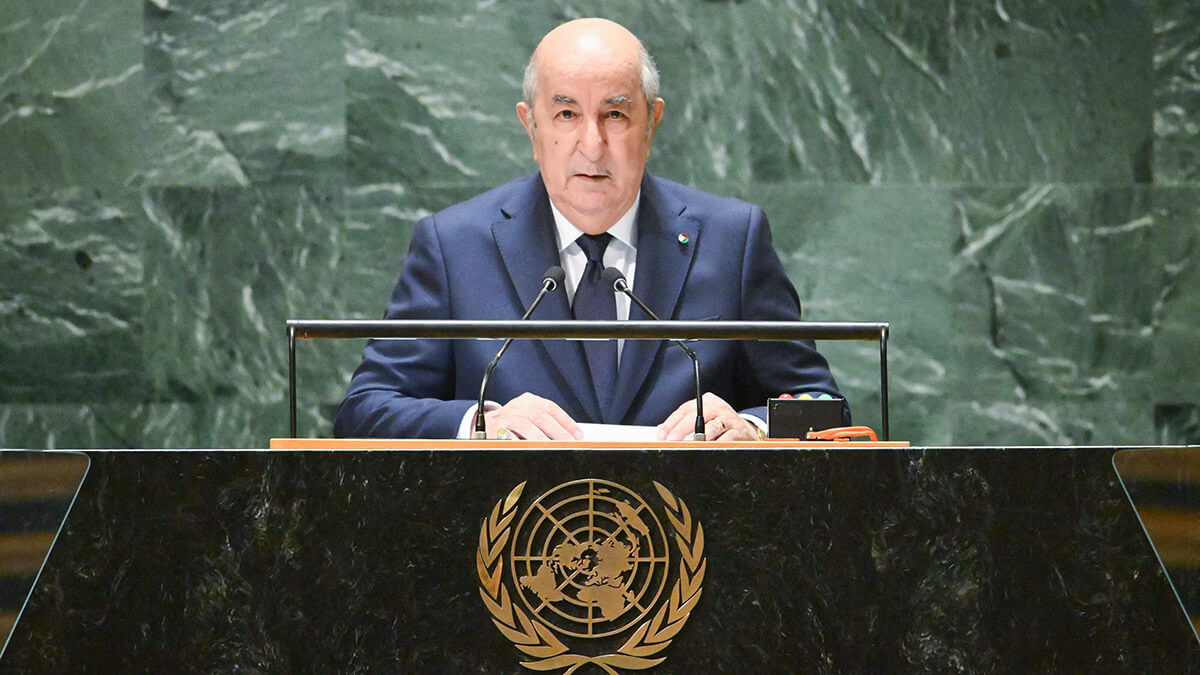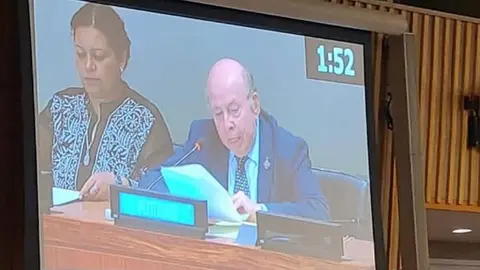Morocco consolidates its strategic cooperation with MINURSO in the service of the Sahara issue

In his recent report to the Security Council on Western Sahara, UN Secretary-General António Guterres shed light on the "close cooperation" between the Moroccan authorities and MINURSO, reflecting their continued willingness to resolve this regional dispute.
Guterres indicated that "the strategic cooperation and continuous communication between MINURSO and the Royal Armed Forces has translated operationally into two visits to the headquarters of the General Command of the Royal Armed Forces in Agadir, in September 2022 and July 2023".
These permanent contacts have been consolidated through three meetings between the military component of MINURSO and the Royal Armed Forces: the first meeting took place in the city of Laayoune in November 2022, while the next two were held in Agadir in December 2022 and January 2023, respectively.
Thanks to this established communication and cooperation with the Kingdom, MINURSO had been able to carry out its scheduled visits to Royal Armed Forces Units, as part of its task of monitoring the ceasefire in the region. This reinforces the role actively exercised by the Alawi kingdom in the management of the Sahara issue.
Speaking of cooperation with Morocco, the UN Secretary General highlighted the role played by the Moroccan authorities in mine clearance, noting that it had "responded positively to MINURSO's request to resume demining activities in the area".
Moreover, Guterres commended MINURSO's freedom of movement in the Sahara, which allows it to carry out its task of ceasefire monitoring in the best possible conditions; noting that the UN Mission for the Referendum in Western Sahara established by Security Council Resolution 690 in 1991 carries out its tasks with the consent of Morocco which accompanies any movement of MINURSO forces.

The freedom of movement of MINURSO in the Sahara, in collaboration with the Moroccan authorities, refutes the lies of the "liberated territories" promoted by Algeria and the Polisario, as the UN representative rightly underlined.
In this context, Guterres stressed "Morocco's declared intention to continue to respect the cease-fire and military agreements, as well as to maintain its close cooperation with MINURSO, at all levels".
Guterres recalled that Algeria is indeed considered a major player whose involvement is crucial to resolve the regional conflict in the Sahara. Taking into consideration the unofficial negotiations organised by the Special Envoy for Western Sahara, Staffan De Mistura, on 30 March this year with Algeria and the various meetings held by De Mistura in Algiers with Algerian foreign ministers and senior Algerian officials, Guterres called on Algeria to develop and clarify its position in order to move towards a just and lasting political solution accepted by the parties concerned by the dispute, in accordance with Security Council decision 2654.

In his report, the Secretary-General revealed the inconsistencies in Algeria's position, considering itself to be an "observer state" instead of being categorically and directly involved in this conflict in order to reach a definitive peaceful solution.
The UN official criticised on the one hand the obstacles imposed by the Polisario Front on the MINURSO mission in its monitoring of the cease-fire operation. On the other hand, he noted the fact that "Algeria still refuses to participate in the round tables", in defiance of Security Council resolutions, including Resolution 2654, which affirms that the round tables are the only structure for political negotiations, a process which is exclusively under the control of the UN.
António Guterres made it clear that "breaking off relations between Algeria and Morocco gives rise to more concern about the situation in the Sahara, as well as making the process of finding a solution to this regional dispute more complicated". On the other hand, he mentioned how through the visits of his special envoy Staffan de Mistura to Laayoune and Dakhla, and the meetings he held with local elected officials and the shiukhs (sheikhs) of the Saharawi tribes, the latter have expressed their support for Morocco's initiative for autonomy under the national sovereignty of the Kingdom.

These visits, according to the Secretary General, were an opportunity to note the progress made in the southern territories of Morocco, stressing the tranquillity enjoyed by these regions and the important infrastructure built to improve the ecological, social, cultural and environmental conditions of the Sahara.
It should be recalled that the Moroccan Minister of Foreign Affairs, Nasser Bourita, confirmed at the last meeting with De Mistura that "Morocco is always open to dialogue with the United Nations human rights mechanisms, both in the north and in the south of the country".










